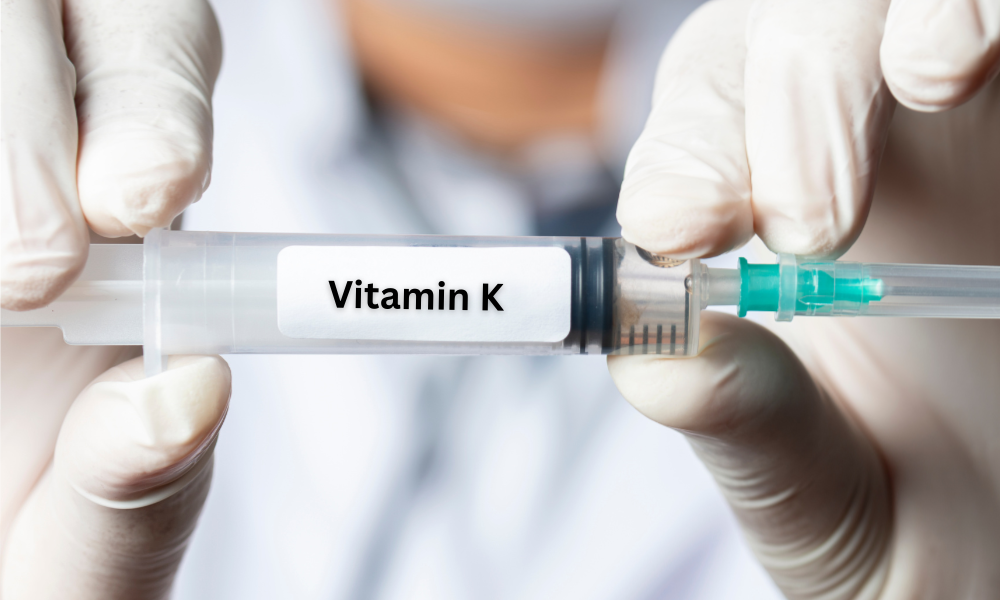Vitamin K is a fat soluble vitamin needed for blood clotting. Newborns are born with lower levels of Vitamin K as they only begin to produce Vitamin K after their intestines are populated with beneficial bacteria via their mother’s breast milk. The argument for Vitamin K injections at birth is that newborn babies have low levels of Vitamin K and this has the potential to put the infant vulnerable to uncontrolled bleeding. The assumption made is that the low levels of Vitamin K in a newborn is a deficiency rather than the perfection of the human body at work.

Product: VITAMIN K1 (Phytonadione Injectable Emulsion USP)
Product Monograph: https://pdf.hres.ca/dpd_pm/00074609.PDF
Manufacturer website: https://www.sandoz.ca/en/products/